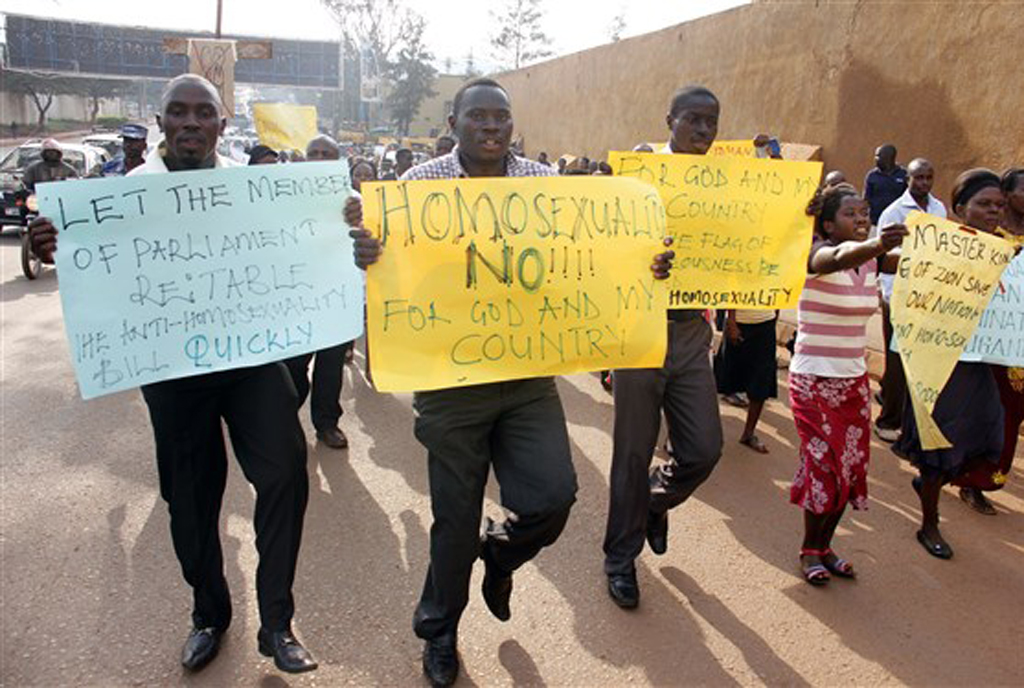Kampala court remands Congolese gateman over sodomizing boy, 6

City Hall Magistrate’s Court in the capital Kampala has remanded a 22-year-old Congolese national for allegedly sodomizing a six-year-old boy.
What you need to know:
- Uganda first criminalised homosexuality and imposed life imprisonment penalty for convicts in 2014 and President Museveni, while signing the anti-gay Act of Parliament into law, said Ugandan scientists had convinced him that homosexuality was an act of nurture, not nature.
A magistrate’s court in Uganda's capital Kampala has remanded a 22-year-old Congolese national for allegedly sodomizing a six-year-old boy.
Dedye Bahati, a gate keeper and resident of Kulambiro-Kigoowa zone in Kampala appeared before City Hall grade one magistrate, Ms Valerian Tuhimbise on Wednesday but he was not allowed to take plea on grounds that a magistrate’s court has no jurisdiction to try offences which are capital in nature and only heard by the High Court.
Court remanded him until June7, when he will appear for mention of his case.
Prosecution led by Ms Viola Tusingwire contends that during the months of April and May 2021 at Kulambiro -Kigoowa II zone, a city suburb, Bahati performed a sexual act with a boy aged six years.
Bahati’s case comes a fortnight after Uganda, for the second time within seven years criminalised gay sex and imposed a 10-year jail term for convicts.
The new offence and penalties are contained in the Sexual Offences Bill, 2019.
The original version of the Bill which is pending President Museveni’s approval, sponsored by the Uganda Women Parliamentary Association (UWOPA) only imported the Penal Code Act provision on “unnatural offences” and did not expressly criminalise or ban gay or lesbian sex.
However, the enacted Bill in Clause 11 criminalises and bans “penetration of another person’s anus with other person’s sexual organ or with any object and, (ii) sexual acts between persons of the same gender”.
Uganda first criminalised homosexuality and imposed life imprisonment penalty for convicts in 2014 and President Museveni, while signing the anti-gay Act of Parliament into law, said Ugandan scientists had convinced him that homosexuality was an act of nurture, not nature.
“… [so], society can do something to discourage the trend,” he said during the then televised signing ceremony.
The law, however, kicked up diplomatic storm, straining Uganda’s relations with donors and opened up the country to both scrutiny and condemnation by rights groups across the world.
Following a petition by gay rights advocates, the Constitutional Court on August 1, 2014, quashed the law on technicality --- that it was enacted without quorum --- in the same week that President Museveni lifted off for the US-Africa summit in Washington DC.
Mr Museveni, upon return, warned Members of Parliament who wanted to reactivate the legislation to “go slow” because the law had “foreign policy implications”.
The debate died down until the sudden introduction of a provision to criminalise and ban sex between same gender in the newly-enacted legislation.
The Bill, now an Act of Parliament, will become law only when President Museveni assents to it, if he will.
During debate on the Bill on the floor of the House early this month, the State Minister for Planning and Ndorwa West MP, Mr David Bahati, who championed the original Anti-Homosexuality Act, said he supported the new legislation because it protects the dignity of African societies and people.
“I support this Bill. This Bill will protect values of our society that we have lived for generations…to preserve the dignity of the African society and above all protect our children,” he said, adding: “The proportion of foreign concept should be halted and first educate people about them. They need to be looked at differently.”
MP Amoding, the mover of the Sexual Offences Bill, 2019, said the introduction of the criminalisation of gay sex was not their original idea and adopted in the “wisdom of the House (Parliament)”.





